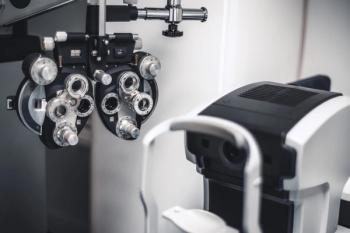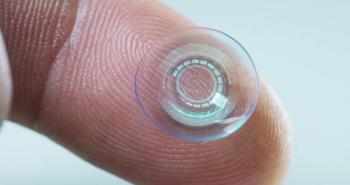
Nicotine inhibits myopic growth in animal models
Nicotine, when administered either as an intravitreal injection or a topical eye drop, significantly inhibited the development of experimental myopia,1 according to a team of Australian investigators led by Kate Thomson from the Centre for Research in Therapeutic Solutions, Faculty of Science and Technology, University of Canberra, Canberra, Australia.
This research builds on their previous experience in which they found that stimulating nicotinic receptors can inhibit experimental myopia. They made this observation during an investigation of the mechanism by which atropine inhibits ocular growth. Their study currently under discussion expands on that preliminary finding and investigates the safety and efficacy of nicotinic stimulation in the inhibition of ocular growth.
Animal study
The researchers investigated the ability of nicotine to prevent form-deprivation myopia (FDM) both when chicks were either injected intravitreally once with nicotine (9 chicks per group) or nicotine was applied topically (6 chicks per group) in 3 doses. The researchers also investigated the ability of nicotine to inhibit lens-induced myopia (LIM) in 12 chicks.
The ocular safety of the treatments was evaluated after 4 weeks of topical nicotine treatment with nicotine (n = 10), by evaluating the pupillary reflex, intraocular pressure, corneal curvature/thickness, lens thickness, retinal health (retinal thickness/cell apoptosis), and retinal function (electroretinogram recordings). In addition, they examined the effects of nicotine on non-ocular autonomic functions in both chicks (n = 5) and mice (n= 5).
Nicotinic effects
Nicotine inhibited LIM (P < 0.05) to a similar degree to that seen for FDM. Although ocular health was mostly unaffected by nicotine, it significantly inhibited the development of FDM in chicks both when administered as an intravitreal injection or in topical eye drops (P < 0.05 for both comparisons), albeit not in a dose-dependent manner; the highest topical dose induced an unexpected temporary reduction in cardiorespiratory output (P < 0.05).
The investigators concluded, “Nicotine, administered as an intravitreal injection or topical eye drop, significantly inhibited the development of experimental myopia. Although the anti-myopic effects observed presently are interesting, the well-reported side effects and addictive properties of nicotine would preclude its clinical use.”
Reference
Thomson K, Karouta C, Ashby R. Administration of nicotine can inhibit myopic growth in animal models. Invest Ophthalmol Vis Sci. 2023;65:29; doi:10.1167/iovs.65.11.29
Newsletter
Want more insights like this? Subscribe to Optometry Times and get clinical pearls and practice tips delivered straight to your inbox.















































